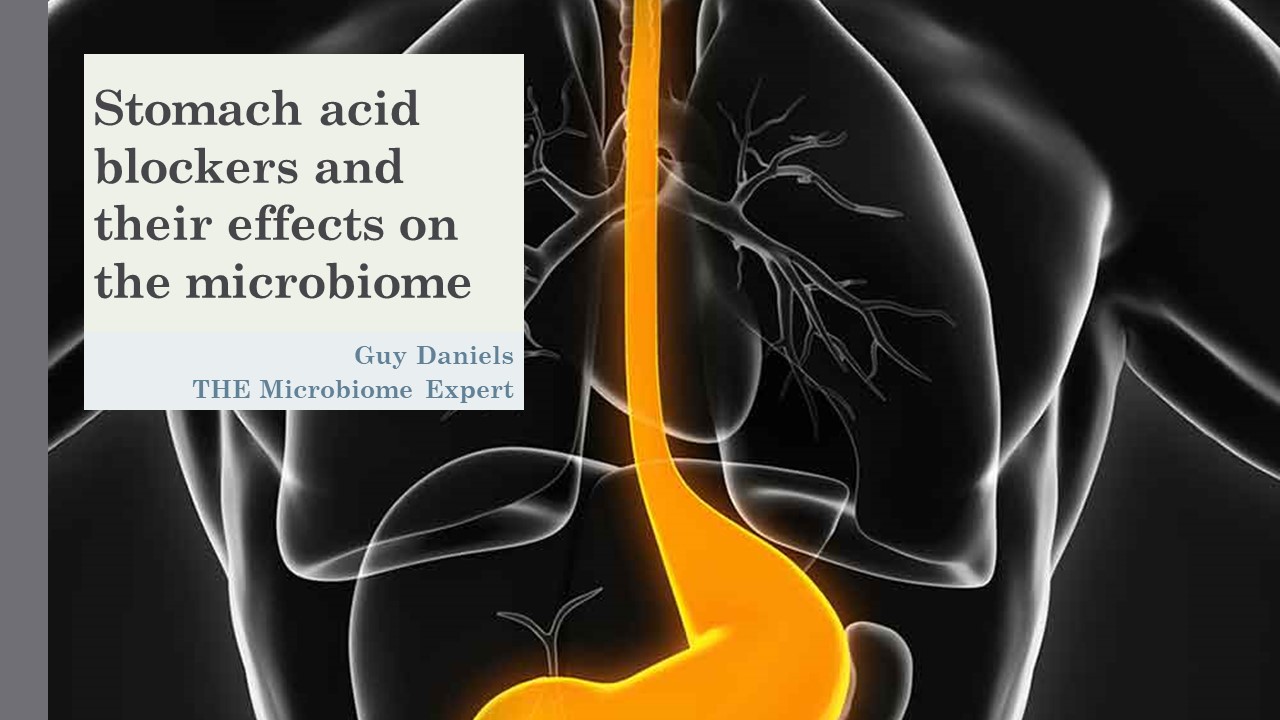I built a very interesting free presentation entitled, “Stomach Acid Blockers and their Effects on the Microbiome”. It really focuses on one particular kind of stomach acid blocker in particular, the PPI – or proton pump inhibitor. This is a topic relevant for many millions of people, given the popularity of these products. So, if this is not relevant for you, I’m willing to bet it’s relevant for a loved one of yours.
There are a number of conditions where PPIs are warranted. They are indicated for the treatment of a variety of conditions, including duodenal ulcers, gastric ulcers, erosive esophagitis, gastroesophageal reflux disorder (GERD) and H-pylori eradication. The point of my webinar is not to contradict your doctor’s advice. The point is to educate you. You should also know that PPIs are over-prescribed by doctors and over self-prescribed by individuals, which is made easy since several are available over the counter. And many studies have shown them to be detrimental to health via several mechanisms. PPIs have been associated with an increased risk of a number of adverse effects including C-difficile infection, community-acquired pneumonia, vitamin B12 deficiency, kidney disease, dementia and osteoporotic-related fractures.
Since I am THE microbiome expert, and I seem to have a one-track mind, my webinar only focuses on the gastrointestinal impact, which is enormous. The rampant use, and overuse is having a significant impact on our overall health. When I say rampant overuse, do I have proof for that statement? – yes I do. In a US study estimating the prevalence of ambulatory care visits in which patients used PPIs, it was found that the majority of cases indicated questionable PPI use with 63% of patients having no documented gastrointestinal complaints, gastrointestinal diagnoses, or concomitant high-risk medications necessitating use of a PPI. And overuse doesn’t only take the form of number of individual prescriptions, but also duration of use. Individuals still frequently remain on PPIs long-term (clinically defined as >8 weeks) even though in most cases, the intended duration of PPI use is only up to 8 weeks. The long-term use of PPIs is especially concerning due to numerous possible adverse side effects. So then why are PPIs so bad for the GI tract to justify this long list of concerns? Let’s start with what the drug does. It stops HCL – stomach acid production in a key step, and it does this very well, for many hours.
There are a number of downstream impacts that this has on the health of your microbiome, and they are for the worse, much worse. Many key opportunistic pathogens (bad bacteria), names of which you´ve never heard of before, like Enterococcus, Escherichia, Streptococcus and Veillonella are consistently significantly increased with PPI use. Even Lactobacillus, the stuff in your probiotics, the genus I´m NOT a fan of, is also consistently significantly increased in PPI use along with these other bad actors. And it is also increased in many other conditions, which you can learn about in my presentations.
In our world as it is, we all now have to be our own health advocates. With a broken government, food and medical system, you need to take charge of your healthcare. So, educate yourself, as best you can. This is why I’ve launched my educational platform. For you. You can find my presentation entitled, “Stomach Acid Blockers and their Effects on the Microbiome” in my Microbiome University tab, and also on my YouTube channel. If you have a condition or disease that you think would be well served by addressing your microbiome, you can visit the Protocols tab on my website, and for the mere price of a cup of coffee, you can find a science-based protocol which may dramatically improve your quality of life.

